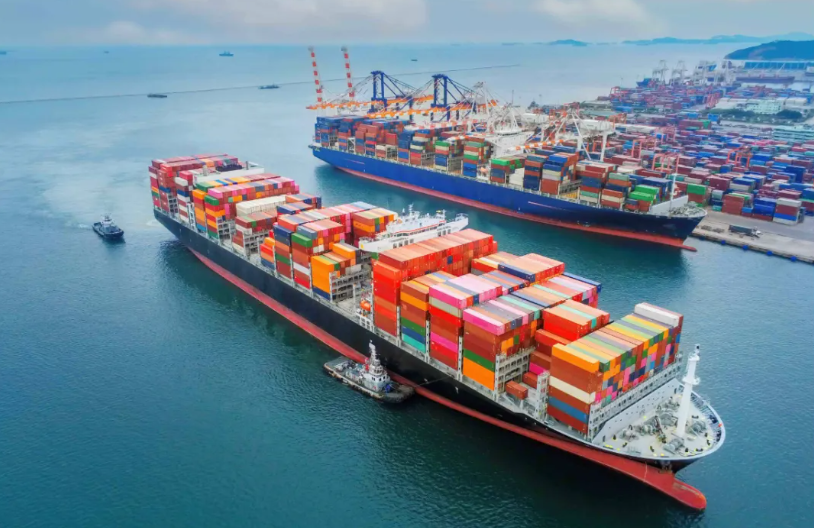Mediterranean Shipping Company (MSC), the world’s largest container shipping line, is planning a historic renewal of its feeder fleet.
According to brokerage Braemar, MSC is preparing a major project that could see the ordering of up to 120 feeder-sized container vessels ranging between 1,100 and 5,000 TEUs. Led by CEO Soren Toft, the global shipping giant aims to replace a significant portion of its aging feeder fleet.
“Looking at MSC’s fleet, this appears to be mainly replacement tonnage, considering the average age of their feeder vessels is 22 years. By the time the new ships are delivered, many will be over 25 years old, making this a logical step,” Braemar stated in a container market update. The report suggests the majority of these new vessels are likely to come from Chinese shipyards, with deliveries potentially stretching through 2029.
Between August 2020 and November 2024, MSC acquired at least 400 secondhand container ships, many of which were older vessels added to meet urgent capacity needs. Data from Braemar indicates that a large portion of MSC’s current owned fleet consists of small and medium-sized vessels, some approaching 30 years of age.
In early 2025, MSC experienced several incidents involving older ships. In February, the MSC Baltic III ran aground off Newfoundland, Canada, due to engine failure. In May, the MSC Antonia grounded in the Red Sea, reportedly due to navigation system issues. Later that same month, the MSC Elsa 3, built in 1997 and 28 years old, capsized and sank off the coast of India following compartment flooding and equipment failure, causing a significant environmental spill. Industry analysis pointed to aging hull structures and deteriorating power and emergency systems as key factors in the sinking.
According to data from Clarkson Research, MSC currently operates 378 ships under 6,000 TEUs as of 2025. Of these, 351 are 15 years or older, 229 are over 20 years old, and 23 have surpassed the 30-year mark. Specifically, MSC owns 330 ships under 5,000 TEUs, of which 304 (over 90%) are at least 15 years old, and 193 are more than 20 years old. Only two ships under 10,000 TEUs are currently under construction—both 8,100 TEU vessels being built at New Era Shipyard—compared to 74 ultra-large ships (over 20,000 TEUs) and 35 mid-sized vessels (10,000–15,000 TEUs) in MSC's orderbook.
Data from Alphaliner shows MSC operates 929 vessels with a total capacity exceeding 6.71 million TEUs, firmly securing its position as the global leader. It owns 652 ships and has over 2.2 million TEUs of additional capacity on order. The company is now shifting from a “mega-ship expansion” strategy to a “feeder fleet restructuring” strategy, signaling a deep strategic realignment in the coming years.
Headquartered in Geneva, MSC is expected to become the first carrier to surpass 7 million TEUs in capacity in the coming months. Over the past decade, MSC has nearly doubled in size through a combination of aggressive newbuild programs and extensive acquisitions in the secondhand market.
MSC’s growth has contributed to Switzerland—a landlocked nation—emerging as one of the world’s top ship-owning countries.
According to VesselsValue’s annual ranking of ship-owning nations by total asset value, published in January, Switzerland ranked ninth, largely due to MSC’s container and cruise fleets.

Last
Ever Feat Encounters Severe Weather, Loses 30-40 Containers Off the Coast of Brazil
According to Spanish media reports, Evergreen Marine's container vessel Ever Feat encountered severe weather while sailing southbo

Next
Xeneta Warns: Transatlantic & Transpacific Freight Rates Slide Sharply, Tariffs and Oversupply Weigh
According to the latest data from ocean and air freight intelligence platform Xeneta, average spot rates from China to the U.S. We
